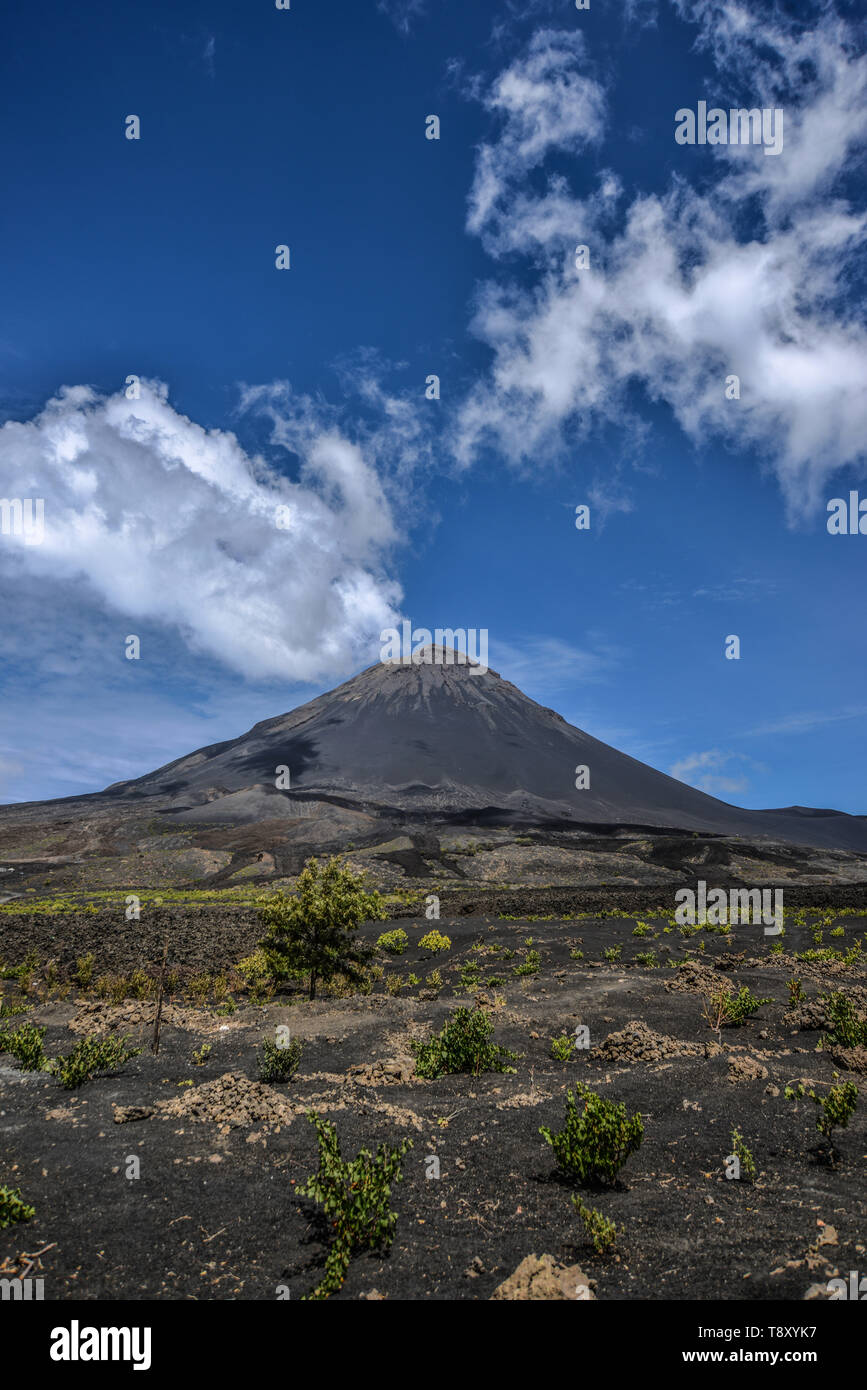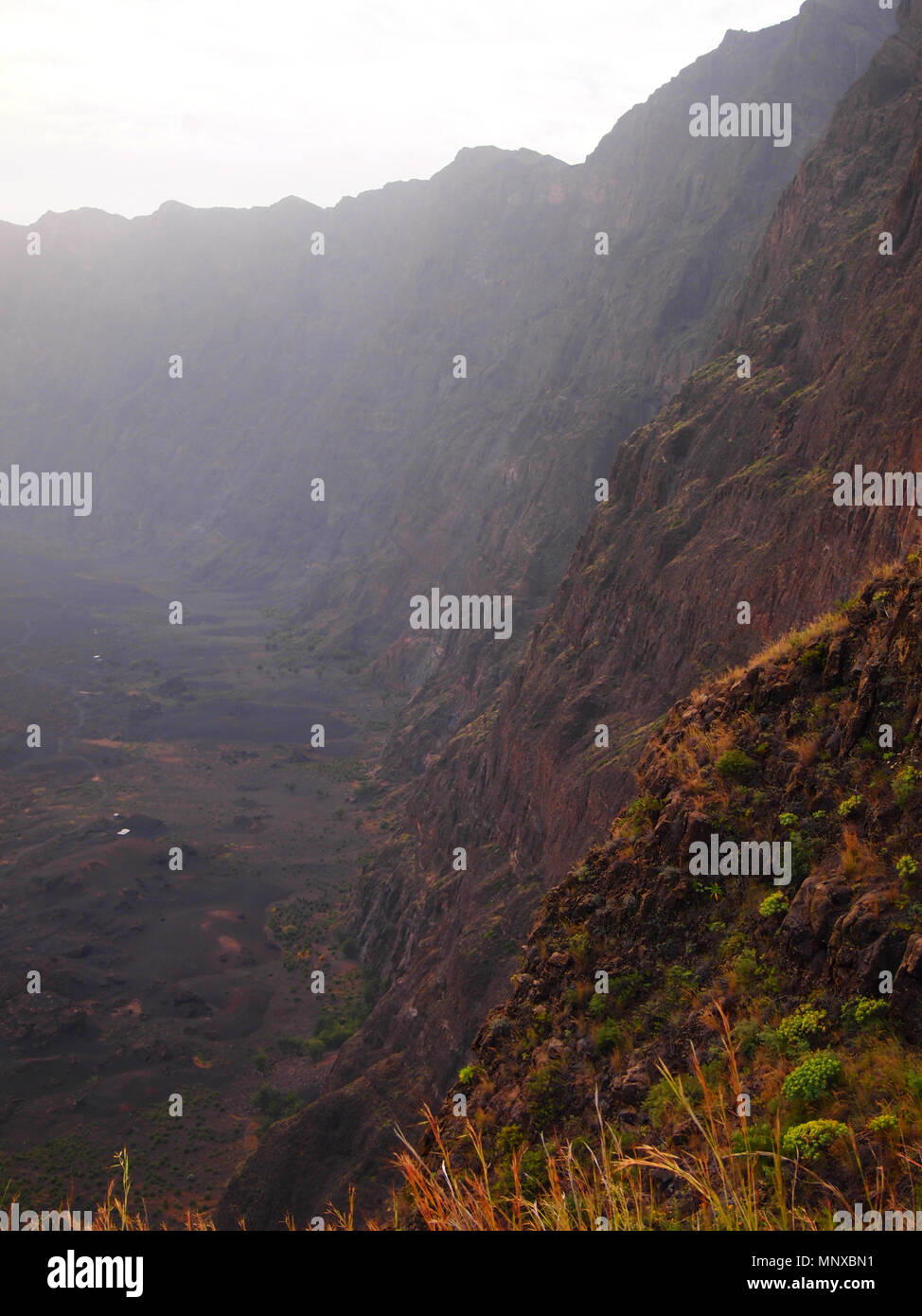Cape Verde: An Archipelago of Volcanic Beauty and Strategic Significance
Related Articles: Cape Verde: An Archipelago of Volcanic Beauty and Strategic Significance
Introduction
With enthusiasm, let’s navigate through the intriguing topic related to Cape Verde: An Archipelago of Volcanic Beauty and Strategic Significance. Let’s weave interesting information and offer fresh perspectives to the readers.
Table of Content
Cape Verde: An Archipelago of Volcanic Beauty and Strategic Significance
Cape Verde, an island nation in the Atlantic Ocean, is a beacon of beauty and resilience, boasting a rich history, diverse culture, and breathtaking natural landscapes. Situated approximately 570 kilometers (354 miles) off the coast of Senegal, this archipelago of ten volcanic islands and eight islets holds a unique position in the world, both geographically and culturally.
A Volcanic Tapestry: The Formation of Cape Verde
The islands of Cape Verde are a testament to the power of geological forces. Formed millions of years ago by volcanic eruptions, they rise dramatically from the ocean floor, creating a stunning array of landscapes. The volcanic origins are evident in the rugged volcanic cones, dramatic cliffs, and fertile valleys that characterize the islands.
A Tapestry of Cultures: The People of Cape Verde
The history of Cape Verde is a fascinating blend of influences. Colonized by the Portuguese in the 15th century, the archipelago became a vital trading post and a hub for the transatlantic slave trade. This historical legacy is reflected in the islands’ diverse population, which comprises descendants of Portuguese settlers, African slaves, and immigrants from other parts of the world. The result is a unique cultural tapestry, where African rhythms, Portuguese traditions, and influences from Brazil, Cuba, and other Caribbean islands intertwine to create a vibrant and distinctive identity.
A Strategic Location: Cape Verde’s Geopolitical Significance
Cape Verde’s strategic location in the Atlantic Ocean has made it a significant player in global affairs. The archipelago lies at the crossroads of major shipping routes, making it a vital hub for international trade and transportation. This strategic position has also made Cape Verde a key partner in international cooperation, particularly in combating piracy and drug trafficking.
A Paradise for Exploration: Discovering the Islands
Each of Cape Verde’s islands offers unique experiences for travelers.
- Santiago: The largest and most populated island, Santiago is home to the capital city, Praia, and offers a vibrant mix of urban life and natural beauty.
- Sal: Known for its stunning beaches and luxurious resorts, Sal is a popular destination for sun-seekers and water sports enthusiasts.
- Boa Vista: Renowned for its pristine beaches and diverse wildlife, Boa Vista is a haven for nature lovers and adventure seekers.
- Fogo: Dominated by the active volcano, Pico do Fogo, Fogo offers dramatic landscapes and opportunities for hiking and exploring.
- Santo Antão: The mountainous island of Santo Antão is a paradise for hikers and nature lovers, with verdant valleys, cascading waterfalls, and dramatic cliffs.
Beyond the Beaches: Cape Verde’s Cultural Heritage
Cape Verde’s cultural heritage is as rich and diverse as its landscapes. The islands are renowned for their vibrant music scene, with traditional genres like "morna" and "coladeira" blending with contemporary influences to create a unique musical tapestry. Cape Verdean cuisine is a delicious fusion of Portuguese and African flavors, with fresh seafood, flavorful stews, and delectable desserts.
A Sustainable Future: Cape Verde’s Commitment to Conservation
Recognizing the importance of its natural resources, Cape Verde has made significant strides in sustainable development. The government has implemented policies to protect its biodiversity, promote renewable energy, and reduce its carbon footprint. These efforts are crucial for safeguarding the islands’ unique ecosystems and ensuring a sustainable future for generations to come.
FAQs: Unveiling Cape Verde
1. What is the official language of Cape Verde?
The official language of Cape Verde is Portuguese. However, a local dialect known as Crioulo is widely spoken throughout the islands.
2. What is the currency of Cape Verde?
The currency of Cape Verde is the Cape Verdean Escudo (CVE).
3. What is the best time to visit Cape Verde?
Cape Verde enjoys a pleasant tropical climate year-round, with temperatures ranging from 20°C to 30°C (68°F to 86°F). The best time to visit is during the dry season, from November to May.
4. What are some of the popular tourist attractions in Cape Verde?
Popular tourist attractions in Cape Verde include the beaches of Sal, the volcanic landscapes of Fogo, the historic city of Praia, and the natural beauty of Santo Antão.
5. Is Cape Verde a safe destination for tourists?
Cape Verde is generally considered a safe destination for tourists. However, as with any travel destination, it is important to exercise caution and be aware of your surroundings.
Tips for Visiting Cape Verde:
- Learn a few basic phrases in Portuguese or Crioulo. This will help you communicate with locals and enhance your travel experience.
- Pack light clothing and comfortable walking shoes. The climate is warm and humid, and you will be doing a lot of walking.
- Bring sunscreen, insect repellent, and a hat. Protect yourself from the sun and insects.
- Try the local cuisine. Cape Verdean food is delicious and affordable.
- Explore the different islands. Each island offers unique experiences and attractions.
Conclusion: A Destination for Discovery
Cape Verde is a nation that embodies the spirit of resilience, cultural diversity, and natural beauty. Its volcanic landscapes, vibrant culture, and strategic location make it a destination of immense appeal. Whether you are seeking adventure, relaxation, or cultural immersion, Cape Verde offers something for everyone. As the nation continues to evolve and embrace sustainable development, it stands poised to become a leading destination for travelers seeking authentic experiences and unforgettable memories.







Closure
Thus, we hope this article has provided valuable insights into Cape Verde: An Archipelago of Volcanic Beauty and Strategic Significance. We appreciate your attention to our article. See you in our next article!